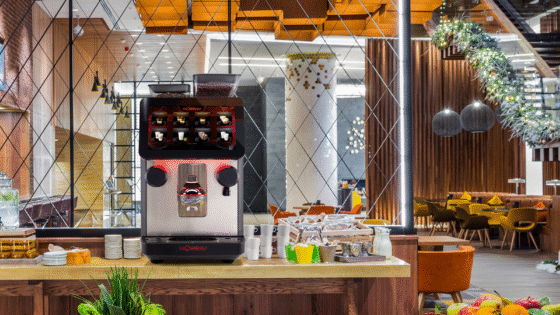The ethical consumer is on the rise, with two thirds of travellers wanting to stay in green hotels. Clare Taylor, Marketing Manager at Hypnos Contract Beds, explains how hotels can boost their eco credentials so that they and their guests can sleep comfortably…
The hospitality industry is under pressure to respond to changing customer preferences, embrace initiatives such as recycling and move towards a more sustainable future. Earlier this year, research by the Association of British Travel Agents (ABTA) highlighted eco-tourism as a key trend for 2018. Its annual Travel Trends, report stated that popular TV programmes like Blue Planet II have put sustainability issues firmly in the spotlight, informing people’s choices about where and how they holiday.
Various studies also show evolving consumer preferences for sustainable and eco-travel. A recent global survey, found that as many as 87 per cent of global travellers state that they want to travel sustainably and nearly four in 10 (39 per cent) say they often or always manage to do so.
So what exactly is ‘sustainable tourism’?
Sustainable tourism is a way of traveling and exploring a destination while respecting its culture, environment, and people. Unfortunately, the era of mass travel that has dominated recent decades – with its hotel tour packages and giant beach parties – has meant that most people do not travel this way.
“Sustainable tourism is a trend that is only going to grow over time.”
However, the world is changing, with rising numbers of conscious consumers that value green and ethical products and services. In the travel sector, ABTA anticipates that sustainable tourism will lead to more initiatives such as social enterprises contributing to communities, carbon-neutral group tours and the banning of plastics from beaches.
Sustainable tourism is a trend that is only going to grow over time. That is why hotels need to ensure that they are prepared to meet customer expectations in this area, for now and the future. Fortunately, there some relatively simple steps hotel managers can take to boost their eco credentials.
Energy efficiency
From central heating systems to lighting systems, kitchen equipment, and automated energy management systems, hotels globally are working to reduce energy use while sustaining – and whenever possible enhancing – the guest experience.
Last year, the International Tourism Partnership (ITP), a grouping of hotel industry leaders, released the Hotel Global Decarbonisation Report, which outlines the hotel sector’s target for carbon reduction in order to meet the two-degree Celsius cap set out in the Paris Climate Agreement. The report highlighted that hotels need to reduce their absolute carbon emissions by 66 per cent by 2030 and by 90 per cent by 2050 to fully play their part in mitigating global warming.
“Many of the leading bed manufacturers aim to help hotels to eradicate the waste associated with old beds.”
Smarter on waste
As well as energy efficiency, more and more hotels throughout Europe are working towards the goal of zero waste, which is about developing strategies and tools to manage waste from various areas of the business more effectively. In hotels, waste can be targeted from housekeeping, back-office, catering and maintenance. The most significant impact will be achieved by reducing the amount of waste hotels send to landfill, with the ultimate goal to have none left.
Look out for services from external suppliers that can help managers to boost initiatives such as recycling. Many of the leading bed manufacturers aim to help hotels to eradicate the waste associated with old beds, for example, with a hassle-free disposal and recycling service, deconstructing them to create recycled raw materials for re-use in other industries. This responsible approach results in 100 per cent landfill avoidance and offers a green way of disposing old mattresses, beds and bedding.
Sourcing responsible suppliers
Another way hotel managers can boost their green profile is to ensure that they source products from suppliers that hold ethical production values. This can be achieved on everything from food to furniture, and sustainability doesn’t have to come at the expense of quality or comfort.
As the number of green conscious consumers continues to grow, hotels have an opportunity to grow their business by providing services that meets the aims and ambitions of sustainable tourism. Calls for an international standard for identifying eco-friendly accommodations are getting louder and those hotels that take the initiative in attracting travellers with action on waste, efficiency and recycling will be best placed for the future.
Main image credit: Pixabay





